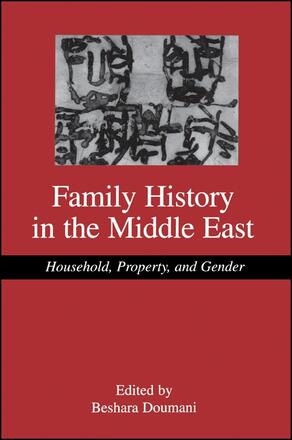
Family History in the Middle East
Household, Property, and Gender
Alternative formats available from:
Challenges conventional assumptions about the family and the modern Middle East.
Description
Despite the constant refrain that family is the most important social institution in Middle Eastern societies, only recently has it become the focus for rethinking the modern history of the Middle East. This book introduces exciting new findings by historians, anthropologists, and historical demographers that challenge pervasive assumptions about family made in the past. Using specific case studies based on original archival research and fieldwork, the contributors focus on the interplay between micro and macro processes of change and bridge the gap between materialist and discursive frameworks of analysis. They reveal the flexibility and dynamism of family life and show the complex juxtaposition of different rhythms of time (individual time, family time, historical time). These findings interface directly with and demonstrate the need for a critical reassessment of current debates on gender, modernity, and Islam.
Beshara Doumani is Associate Professor of History at the University of California at Berkeley and the author of Rediscovering Palestine: Merchants and Peasants in Jabal Nablus, 1700–1900.